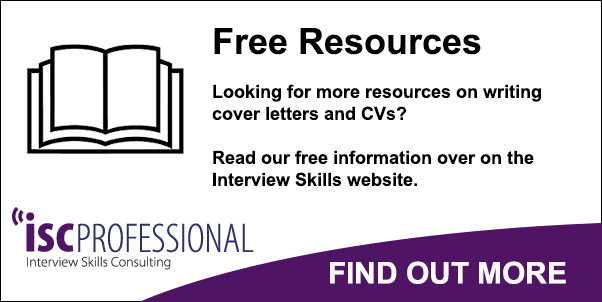Writing a Cover Letter: 10 Tips to Get the Attention of Employers
A successful job search involves many different components- application, CV, interview, all leading to an offer of employment. One key element which many jobseekers often overlook is the cover letter.
Regarded by some as merely a protective jacket for their CV, a well-written cover letter can be a major weapon in your job-seeking armoury.

Follow these ten top tips to make sure your cover letter makes a powerful first impression:
1. Accuracy is essential
Get off to a flying start by ensuring you address the cover letter to the right person. Be careful that you spell their name correctly and use the appropriate job title – this demonstrates strong attention to detail.
If the job advertisement doesn’t include a named contact then use your initiative and phone the company to find out whom to address your application to.
2. Professional presentation
Use standard business layout for the letter and sign off with ‘Yours sincerely’ or ‘Yours faithfully’ as appropriate.
Include your own contact details (which should be clear and current) and highlight the specific job you are applying for.
3. Consider structure
Plan your approach by thinking about what information should be conveyed in each paragraph. Start off with the reason for the letter (applying for the job) and highlight what interests you about the post.
Next, move onto your strengths and the match between these and the job specification. Flag up three reasons why you should be given the opportunity to tell them more at an interview and refer the reader to your CV for further evidence to support your application.
4. Tailor the approach
Never use a generic cover letter. Always tailor the letter to reflect the requirements of the specific job on offer and the employing organisation.
Show you’ve done your research by devoting a short paragraph to demonstrate your knowledge of the company and illustrate why you are their ideal candidate.
5. Emphasize your suitability
Make it easy for the employer by headlining the skills, qualifications and attributes which you can bring to the job. Clearly demonstrate how these competencies match with those being sought- essentially waving them under their nose.
6. Be specific
Avoid bland general statements when talking about your experience and expertise. Showcase your suitability with evidence which supports your claims, providing relevant examples to grab the employer’s attention.
7. Be original
Use language which will stand out from the crowd, though obviously nothing offensive. Avoid general statements such as ‘I meet the requirements of the job,’ and ‘I’m a great communicator.’
Making the effort to be original shows you are prepared to make the effort to deliver an original approach.
8. Tap into terminology
Review the job advertisement and reflect back any specific terms used by the company. Supplement these with any other buzzwords relevant to the industry you are seeking employment in, but don’t overdo it and always ensure you use the words in the correct context.
9. Use flattery
Apply your company knowledge in a complimentary manner by applauding their achievements in the industry.
Use specific examples such as particular products you are aware of or business accolades they have received.
10. Review, review, review
Thorough proof reading is essential. Check and check again that all information is correct, and that spelling and grammar are accurate throughout.
For more tips on writing cover letters, check out our free information, and our comprehensive guide to cover letters over on interview-skills.co.uk.





